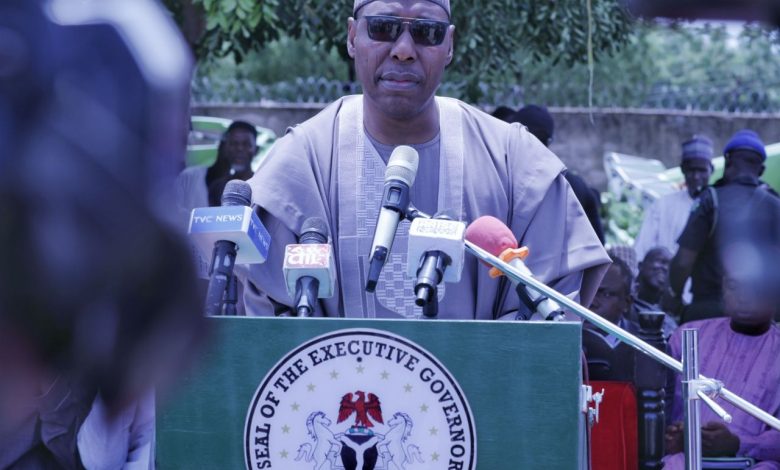
Governor Babagana Zulum of Borno has raised an alarm over the regrouping of Boko Haram insurgents in the Tumbus areas of Lake Chad and the Mandara hills in Sambisa forest.
Zulum spoke on Friday in Maiduguri when Badaru Abubakar, minister of defence, and Christopher Musa, chief of defence staff, led top military commanders to pay him a courtesy visit.
The governor acknowledged the military’s efforts in combating insurgency across the northeast but said recent developments have reversed some of the gains.
He said: “What we are facing now is, we do military exercises/operations, after some time we disengage. The Boko Haram and ISWAP members will again come and take over those areas that were hitherto regained.
“There was never a time since the insurgency started that operations were conducted on the shores of the Tumbus in the Lake Chad water.
“And, it has been a breeding ground for the insurgents. They can get money, livelihoods and everything in that water.
“So there is a need for us to see how military operations should be conducted in the waterway because all the terrorists that are operating in the northwest, north-central, northeast will return to the Sahel and Tumbus in the Lake Chad for their livelihoods. This is something that needs to be done.”
Zulum identified manpower shortages across the Timbuktu triangle, Tumbus, Mandara hills and Nigeria’s porous borders with Sahelian states as part of the problem.
His words: “Manpower is very essential, while I was aware of the constraints of the Nigerian army, because right now you are everywhere in Nigeria. The northeast, northwest and north-central as well as southern Nigeria. I’m aware of your limitations.
“But still considering the northeastern region, the Nigerian army should look into the possibility of sending more trained manpower. There is a difference between Boko Haram, ISWAP, and bandits.”
He said ISWAP and Boko Haram were terrorists with international support and that Nigeria’s porous borders in the Sahel were being used for infiltration.
He said: “If the Sahel is not secured, Nigeria will never be secured. So there is a need for us to fortify the security situation in the Sahel with a view to ending the crisis in the entire nation.
“So we need manpower, and in terms of military operations, the operation should be a continuous exercise.”
“I believe these are some of the things that the MNJTF, the theatre commander and military formations will request from you people.
“Then, in terms of the air force, we need air support. I know the kind of constraints you face accessing fighter helicopters and others, but attack helicopters are very important in these areas, and drones are also very important.”
Zulum said the last attack in Wulgo, carried out by ISWAP and Boko Haram, was aided by armed drones.
“The last attack that happened in Wulgo, carried out by ISWAP and Boko Haram, a confirmed statement said it was carried out with the support of armed drones. They hit the MNJTF with drones.
“This is the time for the Nigerian military to rise again and procure sophisticated drones and anti-drone equipment so that we get rid of these problems,” he lamented.
He urged the military to balance kinetic efforts with non-kinetic approaches.
The governor expressed optimism that the security situation in the state would soon improve and promised continued support for the military.
Speaking earlier, the minister of defence assured the governor of renewed federal support.
Badaru said: “This powerful team from the defence sector is here, the chief of defence staff himself, the two commanders, both outgoing and incoming, and representatives of all the service chiefs.
“We are here this afternoon, Your Excellency, to engage our team here and find out what their requirements are, so as to stop the new trend of insecurity we have been seeing in Borno State and the northeast.
“Ours is to find out what they need in terms of men and equipment. The president has given us the directive to make sure we provide everything required to stop this ugly tide.
“We know that Borno State has enjoyed relative peace for some time now due to your determination, and people have returned to their towns and villages to rebuild their lives.
“We are here to engage you and the state on what advice and guidance you might have for the armed forces.
“We believe your suggestions and ideas will help us further strengthen our strategies and tactics on how to end the insecurity.”
